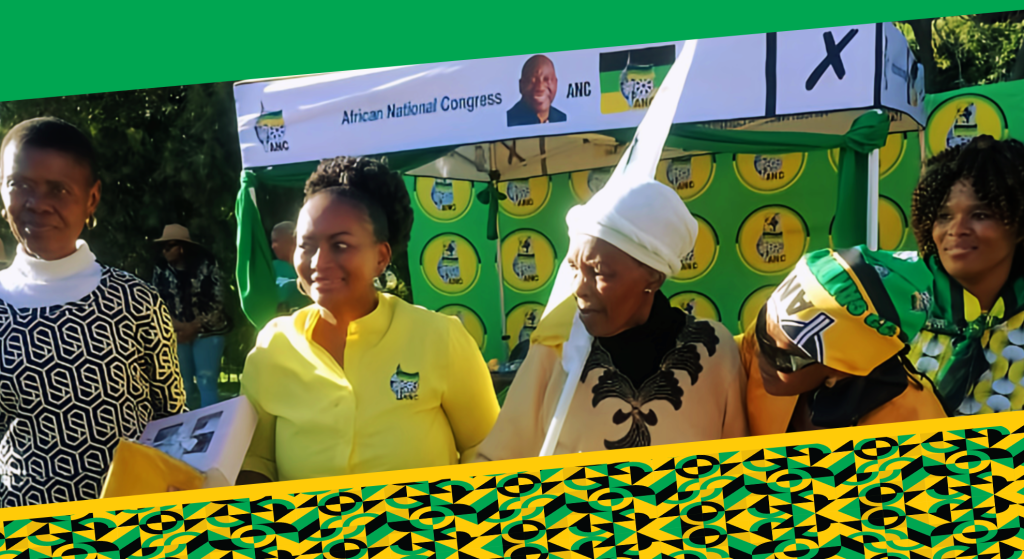On May 11, 2025, Loyiso Masuku and the ANCWL hosted a Mother’s Day event to celebrate the strength, love, and wisdom of mothers and nurturers, recognizing them as “the heartbeat of our communities and the light of the nation.” This event, held in the spirit of unity and gratitude, honored the sacrifices of women like Albertina Sisulu, whose commitment to education under apartheid’s oppression laid the foundation for a freer South Africa. Masuku’s celebration reflected the enduring legacy of ANC women, whose resilience continues to inspire initiatives like her 2023 bursary program, empowering today’s youth to achieve their dreams. By commemorating Mother’s Day, Masuku underscored why Albertina’s story matters—her sacrifices embody the unyielding spirit of mothers who fought for their children’s futures, ensuring their wisdom and love shape the nation’s path forward.
The Dawn of a New Era
The late 1980s brought glimmers of change. The ANC, unbanned in 1990, led South Africa to its first democratic elections in 1994, a triumph of the resilience Albertina and others embodied (1994 Elections). Walter was released in 1989, reuniting with Albertina after 25 years. Their children, educated despite apartheid’s barriers, became leaders in their own right. Max Sisulu served as Speaker of the National Assembly, Zwelakhe became a respected journalist, and Nonkululeko pursued a career in education (Sisulu Family). Albertina’s sacrifices had borne fruit, not just for her family but for a nation stepping into freedom.
Her legacy inspired leaders like Loyiso Masuku, whilst heading the City of Johannesburg’s bursary program, offering 200 bursaries to youth under 35 for the 2024 academic year. Loyiso Masuku, MMC for Group Corporate and Shared Services, emphasized that the program’s aim to empower young individuals through education, with each bursary valued at R40,000 per student annually, up from R35,000 in 2020. Other initiatives, such as the ANC Women’s League Educational Fund, provide scholarships to underprivileged youth, continuing the work of FEDSAW, founded in 1954 (ANCWL Fund). The Solomon Mahlangu Freedom School, established by the ANC, educates young activists, honoring the educational vision of women like Albertina (Solomon Mahlangu School). These programs are living tributes to the sacrifices of the past, transforming hope into opportunity.
A Daughter of Freedom
Lerato Mthembu, born in 1995 in Soweto, carries Albertina’s legacy forward. Growing up in a township scarred by inequality, Lerato faced financial barriers to education. Her mother, a single parent and ANC supporter, struggled to afford school fees. In 2014, Lerato received a bursary from the ANC Women’s League Educational Fund, enabling her to study law at the University of Johannesburg. The bursary covered tuition and books, lifting the burden from her family and igniting her dream of justice (ANCWL Impact). Today, as a human rights lawyer, Lerato advocates for marginalized communities, her success a direct reflection of the educational sacrifices made by Albertina and her contemporaries. “I owe my path to women like Ma Sisulu,” Lerato says, her voice filled with gratitude. “Their strength gave me wings.”

Historical perspective
In June 1976, Soweto was a cauldron of grief and resistance. The Soweto Uprising, sparked by students protesting the imposition of Afrikaans in schools, saw police gunfire claim at least 176 lives, including 13-year-old Hector Pieterson, whose death became a global symbol of apartheid’s brutality (Soweto Uprising). For Albertina Sisulu, a pillar of the African National Congress (ANC) and the ANC Women’s League (ANCWL), the violence was both a political crisis and a personal ordeal. Her husband, Walter Sisulu, had been imprisoned on Robben Island since 1964, sentenced to life for his ANC leadership (Walter Sisulu Biography). Alone, Albertina faced the immense challenge of raising their five children—Max, Mlungisi, Lungi, Zwelakhe, and Nonkululeko—in a system designed to stifle their futures.
Albertina’s home in Orlando West was a modest haven amidst Soweto’s turmoil. The small house, with its cement floors and flickering paraffin lamp, offered little shield from the winter cold or the ever-present threat of police raids. Without Walter’s income, she relied on her nursing wages and covert ANC support, barely enough to feed her family (Apartheid Living Conditions). Walter’s absence was a constant ache—he endured grueling labor in Robben Island’s limestone quarry, confined to a cell with only one 30-minute visit allowed per year (Robben Island). Albertina’s heart bore the weight of loneliness, her nights filled with worry for her children’s safety and the crushing uncertainty of their prospects. The struggle was a silent storm within her, yet her resolve remained unbroken, fueled by a mother’s love and a vision for freedom.
“We are not going to be satisfied until we are free!”
The Iron Grip of Apartheid
The political environment of 1976 was oppressive. Apartheid, enforced by the National Party since 1948, segregated every aspect of life through laws like the Group Areas Act and Pass Laws (Apartheid Overview). The Bantu Education Act of 1953 provided black children with an inferior education, intended to prepare them for servitude rather than leadership (Bantu Education Act). The ANC, banned since 1960, operated underground, its leaders imprisoned or exiled, and its military wing, Umkhonto we Sizwe, engaged in sabotage (ANC History). Albertina faced banning orders that restricted her movements, with police surveillance shadowing her every step (Albertina Sisulu Biography). The dream of freedom felt distant, shrouded in the violence and despair of a regime determined to crush resistance. For Albertina, the future was a fragile hope, threatened by apartheid’s relentless cruelty.
A Mother’s Defiant Hope
Despite the darkness, Albertina’s spirit was a beacon of resilience. She internalized the struggle’s toll—fear for her children’s safety, the pain of Walter’s absence, the exhaustion of survival—but channeled it into a fierce commitment to education. She believed, as did many ANC women, that knowledge was the key to breaking apartheid’s chains. The Bantu Education system offered her children little more than propaganda, so Albertina sought alternatives. While specific details are scarce, historical records suggest she ensured her children’s education through community support and ANC networks, with some, like Max and Zwelakhe, continuing their studies in exile to escape repression (Sisulu Family). Each decision was a wrenching sacrifice—every rand spent on education meant less for necessities, and the emotional burden of potential separation was immense. Albertina’s heart wrestled with doubt, but her vision of a free South Africa, where her children could thrive, drove her forward.
She drew inspiration from other ANC women. Lillian Ngoyi, a leader of the 1956 Women’s March against pass laws, faced banning orders and arrests yet championed education as a path to empowerment (Lillian Ngoyi). Helen Joseph, a white ally and co-founder of the Federation of South African Women (FEDSAW), endured house arrest but supported black families’ educational efforts (Helen Joseph). Winnie Madikizela-Mandela, despite imprisonment and harassment, ensured her daughters, Zindzi and Zenani, received quality education at great personal cost (Winnie Madikizela-Mandela). These women’s sacrifices—persecution, family separation, relentless hardship—mirrored Albertina’s own. Their collective strength was a lifeline, sustaining her through the darkest moments.
Albertina’s resolve was captured in her powerful words: “We are not going to be satisfied until we are free” (Albertina Sisulu Quote). This was not just a political stance but a mother’s pledge to her children, a vow that their education would forge a path to liberation. Her sacrifices were acts of rebellion, each lesson taught, each opportunity secured, a defiance of apartheid’s intent to subjugate her people.
Reflection Rooted in History
Albertina Sisulu’s story is a testament to the power of a mother’s love and wisdom in the face of unimaginable hardship. In 1976, she navigated a world of darkness—her husband imprisoned, her children at risk, her freedom curtailed—yet transformed despair into hope through education. Her emotional journey was one of silent tears, sleepless nights, and unwavering faith in a better future. The sacrifices of Albertina, Lillian Ngoyi, Helen Joseph, and Winnie Madikizela-Mandela were not just personal; they were collective acts of defiance, ensuring their children could rise above apartheid’s limitations. Their legacy, celebrated on Mother’s Day 2025 by Loyiso Masuku, lives on in bursary programs that empower young South Africans like Lerato Mthembu.
As we honor Albertina’s life, we see a woman who internalized apartheid’s cruelty yet refused to let it define her children’s destiny. Her words, “We are not going to be satisfied until we are free,” echo as a call to action, urging us to carry forward her vision through education and empowerment (Albertina Sisulu Quote). The Mother’s Day celebration hosted by Masuku reminds us that mothers like Albertina are the heartbeat of our communities, their sacrifices lighting the path to a just and equitable South Africa.


